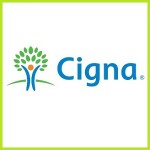
Cigna Health Insurance
The Centers for Medicare and Medicaid Services (CMS) issued an immediate suspension of enrollment and marketing activities for Cigna-HealthSpring Medicare Advantage plans on January 21, 2016. The immediate intermediate sanctions against enrollment and marketing activities for Cigna, HealthSpring, and Bravo Health Medicare Advantage plans apply to MA-PD plans sold in the states of Alabama, Arizona, Tennessee, Georgia, Pennsylvania, South Carolina, North Carolina, and Florida. The CMS sanctions were imposed on Medicare Advantage medical plans which include prescription drug coverage also known as MA-PDs.

Cigna HealthSpring cannot enroll any new members until Medicare lifts enrollment and marketing sanctions.
Cigna sanctions from Medicare
None of the sanctioned plans can enroll any new members. None of the sanctioned plans can even be marketed to prospective enrollees including information about the plan on a website. Existing members will not be affected. The plans will continue to operate as outlined in the plan materials and Evidence of Coverage documents.
The sanctions were placed on the Cigna MA-PDs after an audit concluded that, “Cigna substantially failed to comply with CMS requirements regarding Part C and Part D organization/coverage determinations, appeals and grievances…” The result was that the violation in both the medical portion (Part C) and the prescription drug portion (Part D) of the MA-PDs which caused enrollees to experience delays or denials in receiving medical services and prescription drugs and increased out of pocket costs.
Cigna has had a longstanding history of non-compliance with CMS requirements. Cigna has received numerous notices of non-compliance, warning letters, and corrective action plans from CMS over the past several years. A number of these notices were for the same violations discovered during the audit, demonstrating that Cigna has not corrected issues of non-compliance. –CMS notice to Cigna
Some of the Cigna violations that were documented that led to the sanctions included
- Failure to conduct required outreach to providers or to beneficiaries to obtain information necessary to make appropriate clinical decisions.
- Misclassifying Part C reconsiderations as organization determinations.
- Denial letters for Part C organization determinations, Part D coverage determinations and appeals did not include adequate rationales, contained incorrect/incomplete information specific to denials, or were written in a manner not easily understandable by beneficiaries.
- Failure to pay provider claims within 60 days after receipt of the organization determination request.
- Failure to notify beneficiaries and providers (if the providers requested the services) of its determinations within 72 hours of receipt of Part C expedited organization determination and reconsideration requests.
- Failure to auto-forward or timely auto-forward Part D coverage determinations and/or redeterminations to the Independent Review Entity (IRE) for review and disposition.
- Failure to provide accurate or complete information in Part C grievance resolution letters.
- Failure to have procedures for tracking and maintaining records about the receipt and disposition of Part C grievances.
- Dismissed Part C cases prior to the conclusion of the appeal timeframe. As a result, enrollees’ requests for coverage may have been inappropriately denied.
- Failure to issue Part C Explanation of Benefits (EOB) notices to enrollees, as required beginning April 1, 2014.
- Failure to properly oversee its delegated entities responsible for processing Part C organization determinations, appeals and grievances.
- Failure to properly effectuate prior authorization or exception requests.
- Failure to properly administer its CMS-approved formulary by applying unapproved quantity limits.
- Failure to provide enrollees transition supplies of medications.
CMS noted,
Cigna has experienced widespread and systemic failures impacting Cigna enrollees’ ability to access medical services and prescription medications. In addition to discovering these issues during the CMS program audit, CMS has received numerous complaints from enrollees demonstrating that enrollees are having difficulties accessing medications and services. Enrollee access to services and prescribed medications is the most fundamental aspect of the Part C and Part D programs because it most directly affects clinical care. The lack of a compliance infrastructure, coupled with serious deficiencies of Cigna’s administration of the Medicare Parts C and D requirements, resulted in enrollees being denied access to the medical services and drugs that they are entitled to receive. – CMS Cigna sanctions notification
Opportunity to Correct
Pursuant to 42 C.F.R. §§ 422.756(c)(3) and 423.756(c)(3), the sanctions will remain in effect until CMS is satisfied that the deficiencies that are the basis for the sanctions determination have been corrected and are not likely to recur. Cigna is solely responsible for the identification, development, and implementation of its Corrective Action Plan, and for demonstrating to CMS that the underlying deficiencies have been corrected and are not likely to recur.
Enrollment and marketing sanctions can last for as long as twelve months, or longer, until Medicare is satisfied that the violations have been corrected and will not happen again. Medicare sanctions are a serious blow to the marketing and business plan of any MA-PD sponsor. Even though open enrollment for Medicare concluded in early December 2015, there can still be substantial numbers of enrollments into plans during the year as people turn 65 years or move into areas where Cigna plans are offered. Not being able to enroll new members can put a serious dent is the anticipated membership pool for a MA-PD.
Download the complete Notification letter from CMS to Cigna
See also:
